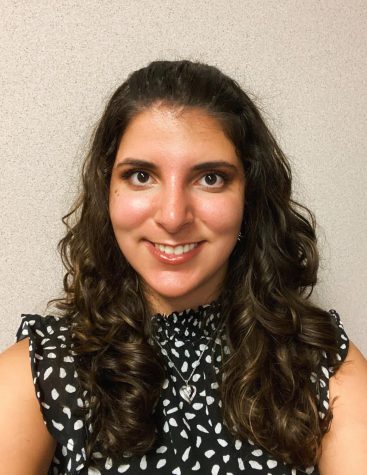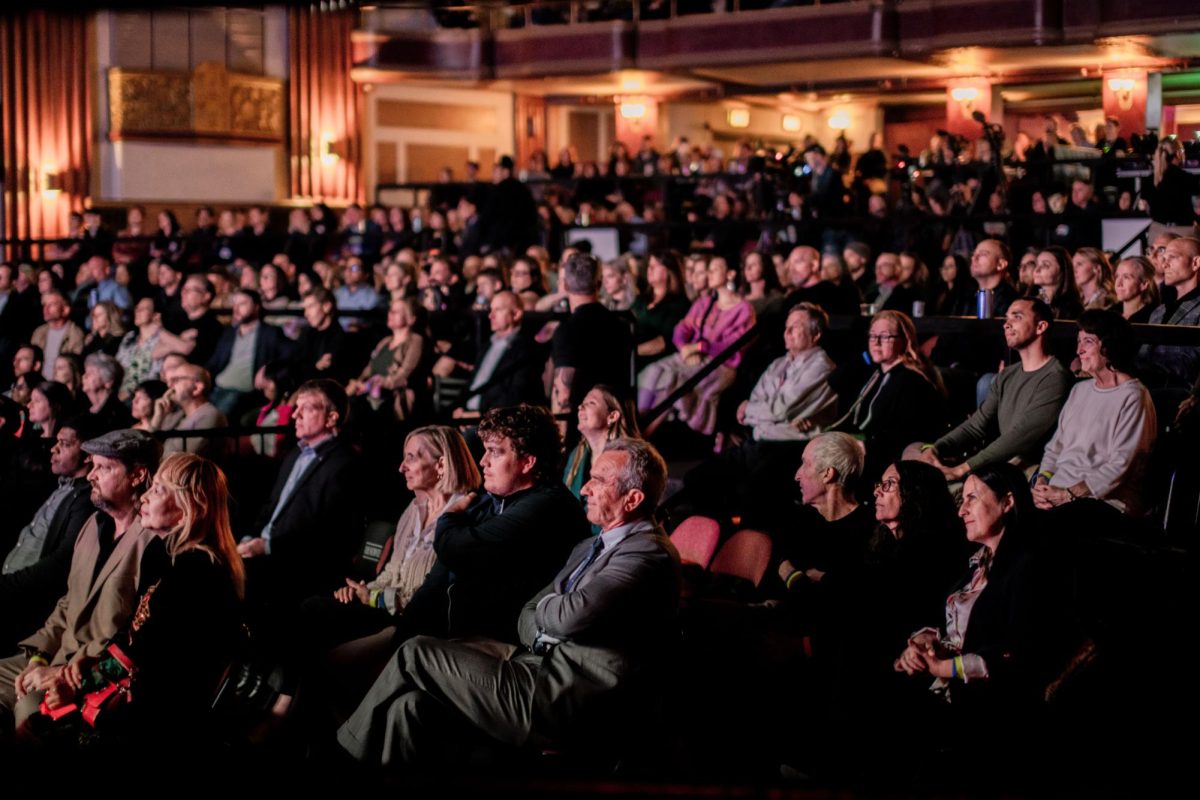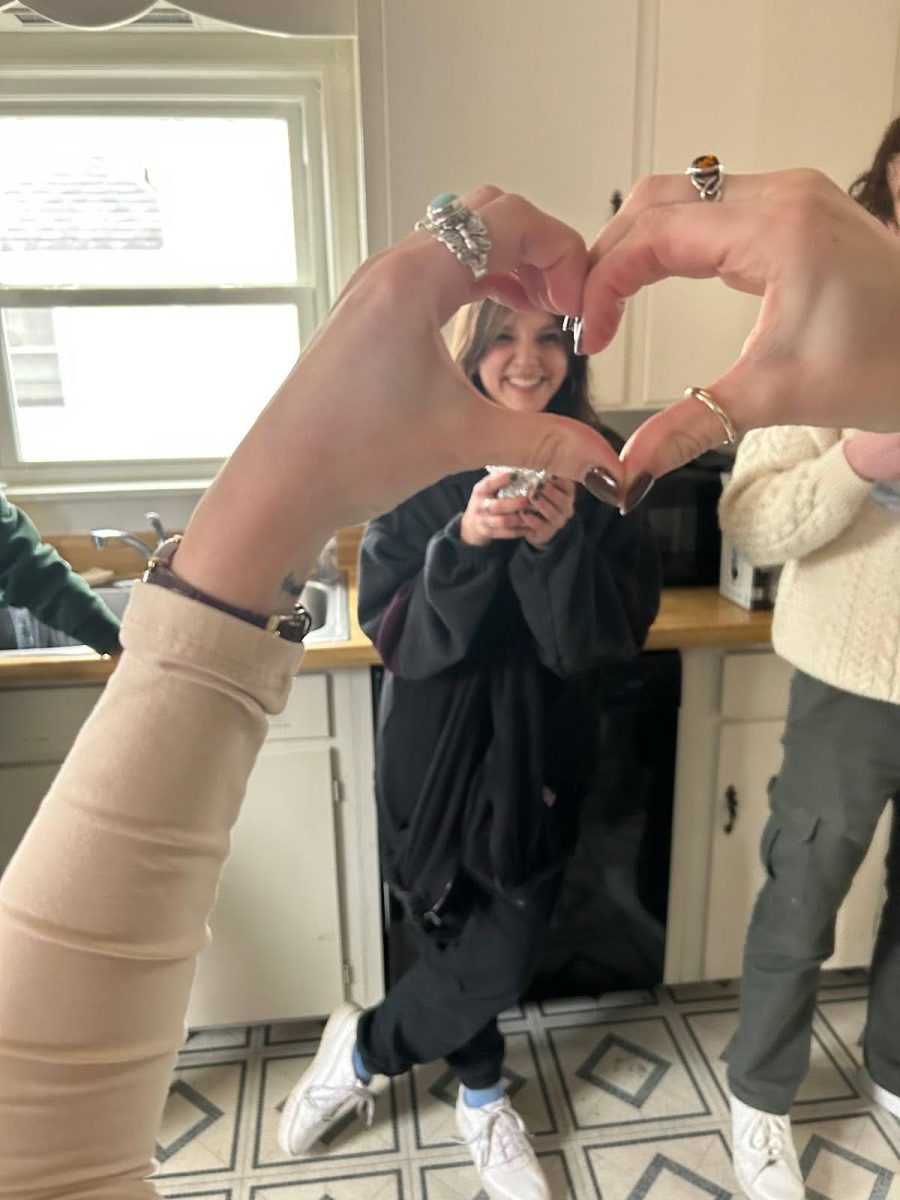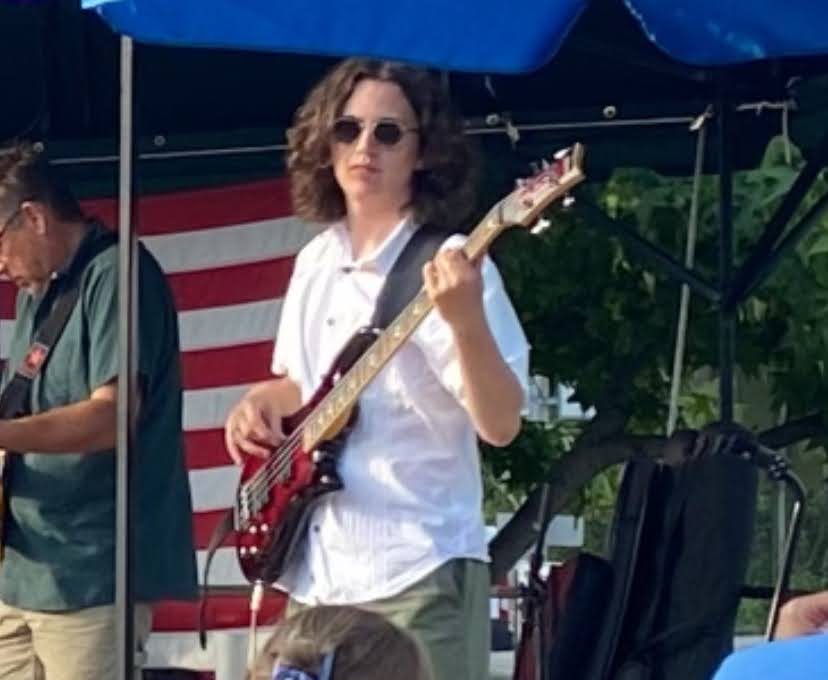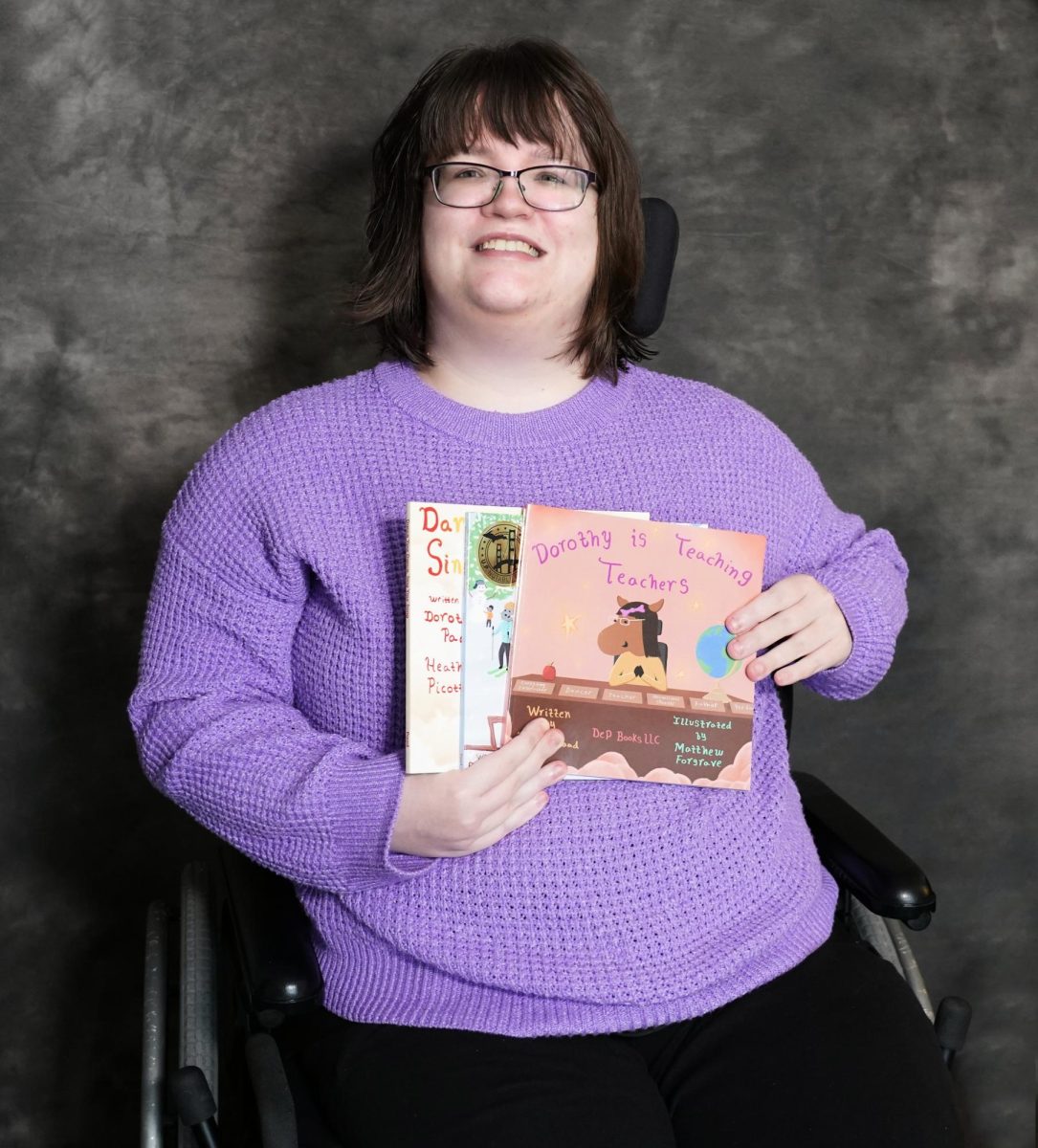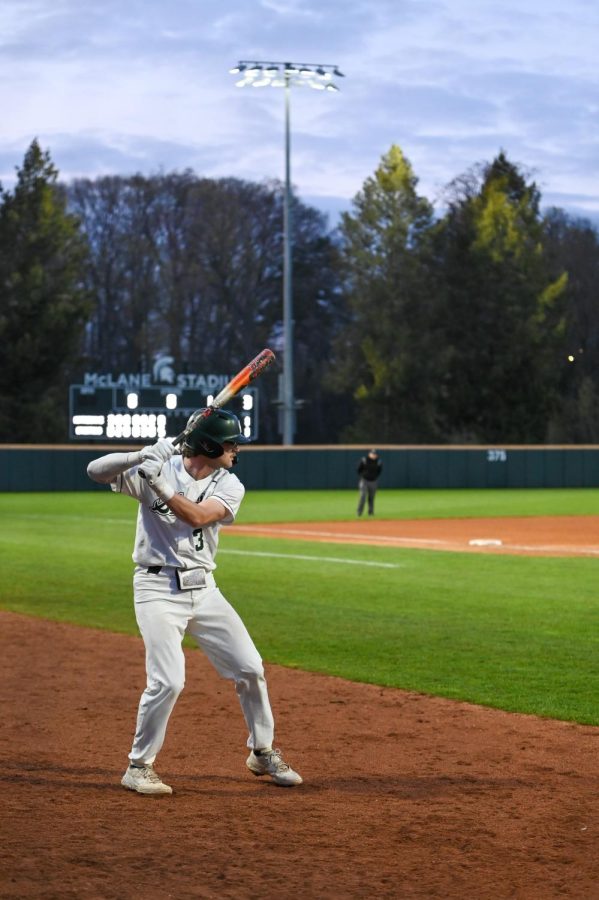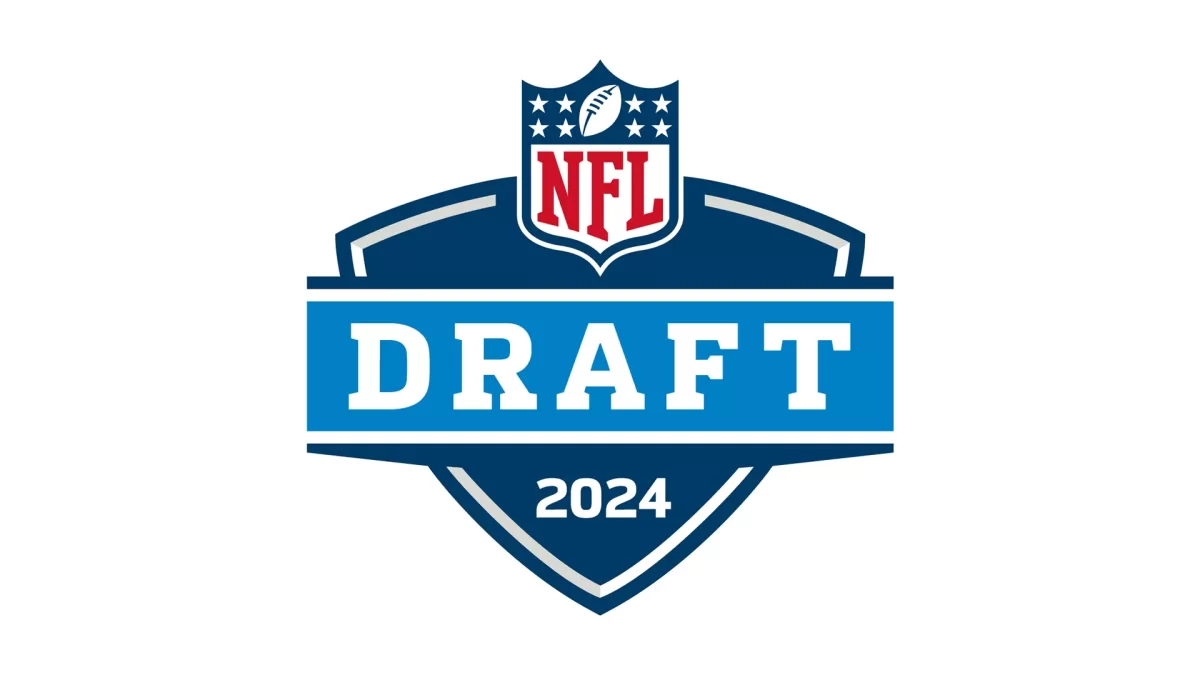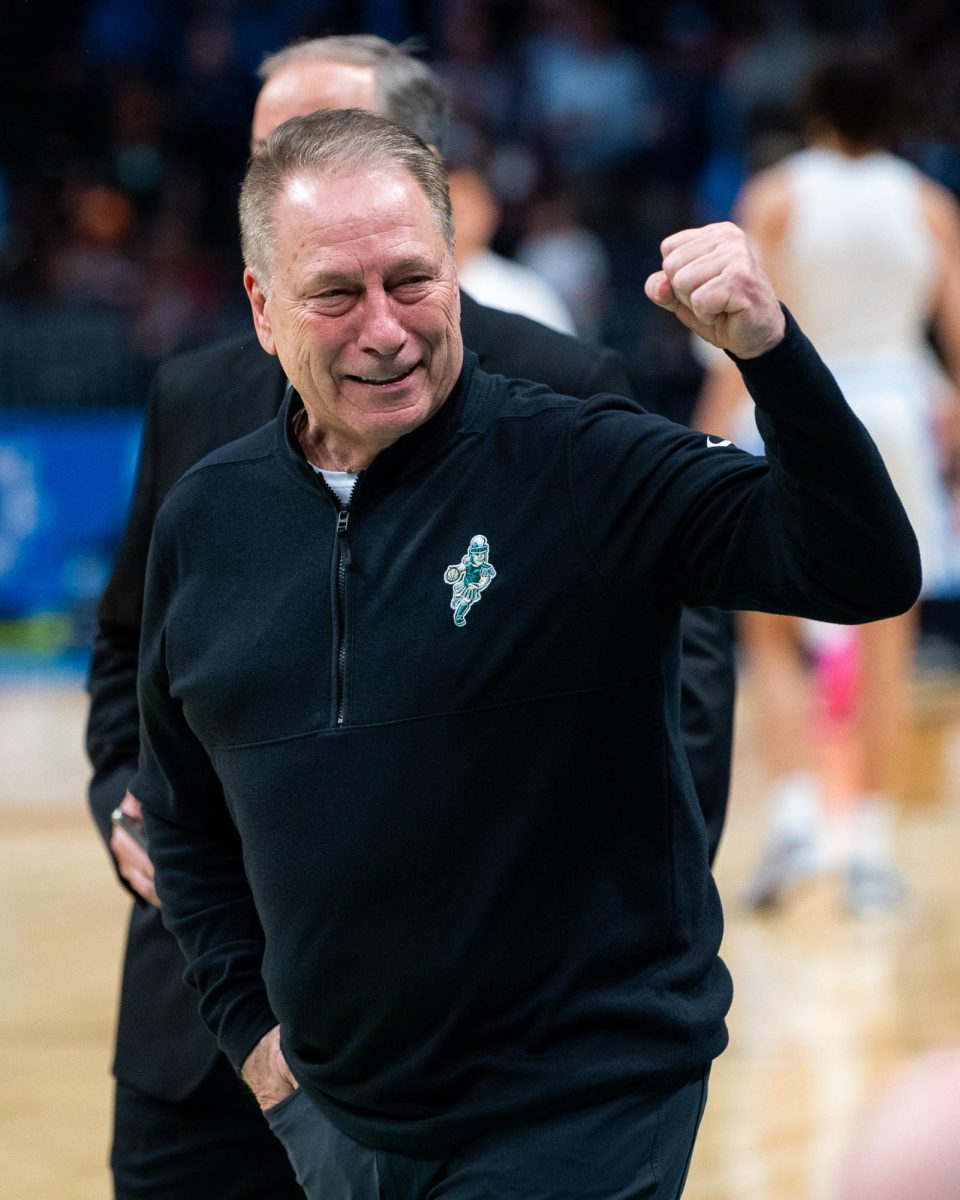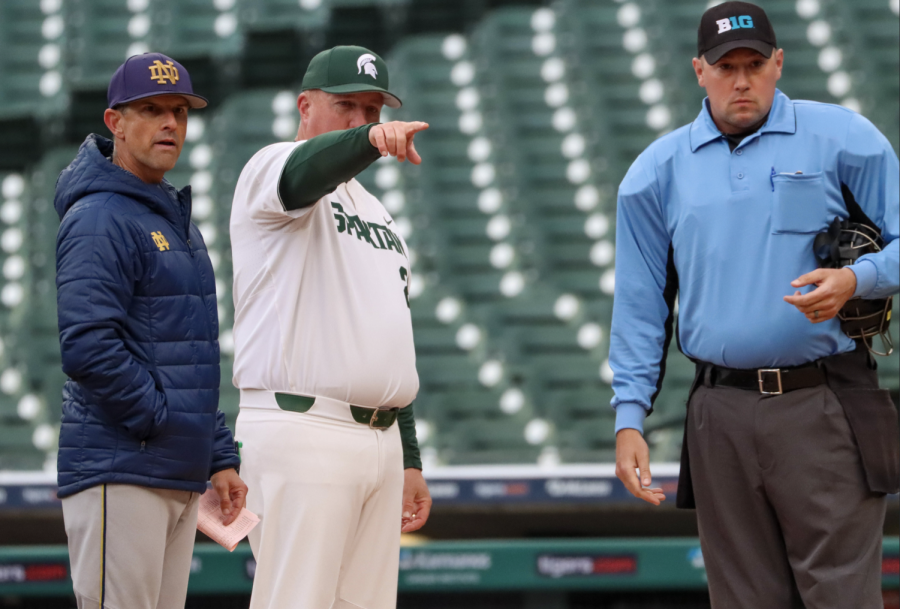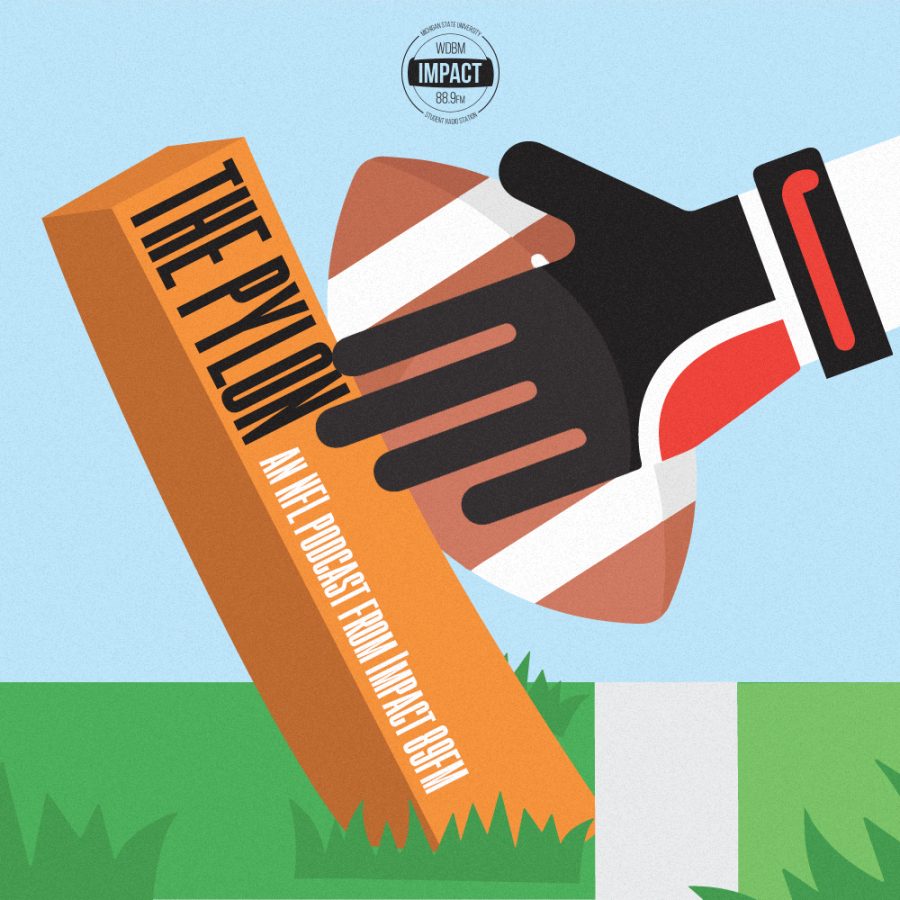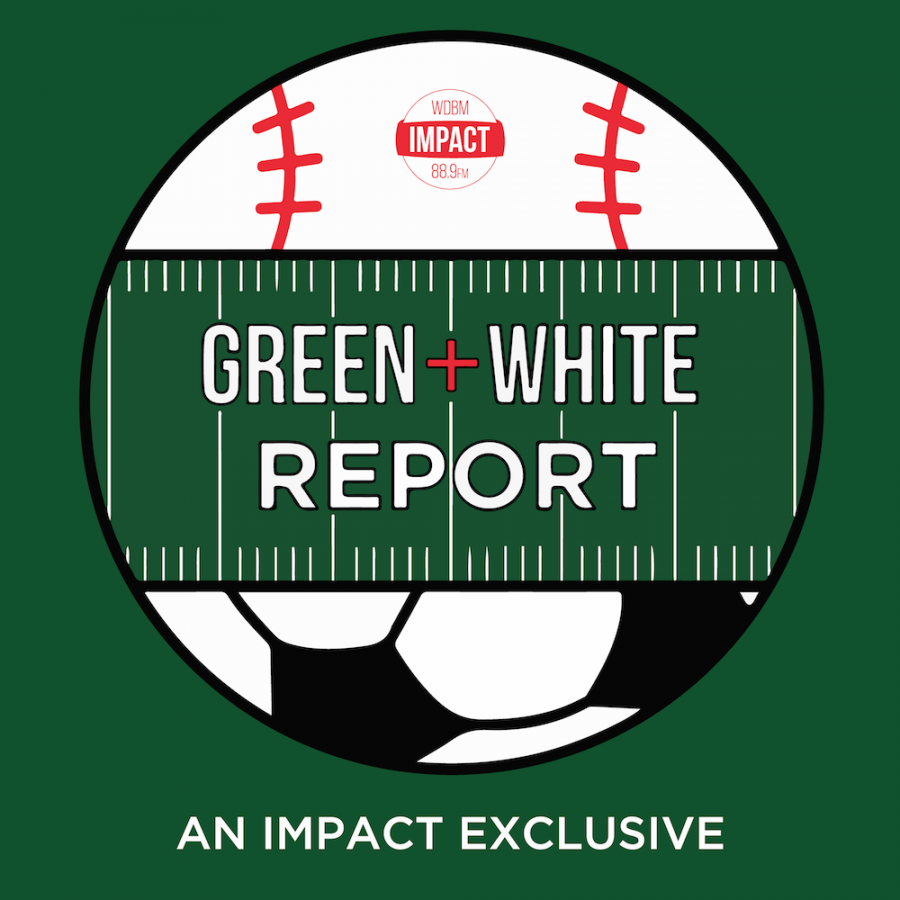Exposure – 5/17/2020 – TRANSCRIPT for MSU Community Liaison
May 24, 2020
Interview Transcript
Connie Rahbany: Hello and welcome to Exposure. I’m your host, Connie Rahbany, and today I’m interviewing with Michigan State University’s and East Lansing’s community liaison, Sue Webster. Thank you for joining me.
Sue Webster: Glad to be here.
Connie Rahbany: So can I have you introduce yourself and tell me a little bit about you?
Sue Webster: Sure. My name is Sue Webster. My full name is Suchitra Webster and, uh, people call me both of those things, but most folks seem to know me as Sue. I am Michigan state university’s community liaison and, um, what that means essentially is that I work wherever the university intersects with the surrounding community. So, um, and particularly where students are concerned. So that could mean municipalities. It could mean businesses, nonprofits, wherever there’s a need, I think, um, one way to think of my role is as that of a bridge, um, or a resource. There are a lot of people outside of the university who look at MSU and they’re completely perplexed as to where to get information or how to begin, so that is another thing I try to assist people in figuring out how to do some problem solving. I try to strategize with them. Um, so it’s a unique position and. I would also add that I’ve been at MSU for a long time and I’ve had multiple roles here, including, uh, in the office of admissions and also doing academic advising. So between those things and the number of years I’ve lived in East Lansing, I have a pretty wide, uh, background and know lots of people and resources.
Connie Rahbany: Under normal circumstances and compared to now, how have things had to change since the global pandemic COVID-19?
Sue Webster: Well, as you might imagine, this position is very relational and it requires, um, you know, developing relationships with people, building a level of trust and being able to communicate confidently, constantly and effectively. And luckily for us, because of all of the amazing technology, I’ve had, the chance to continue working with people still attending meetings in the city of East Lansing or, um, having zoom meetings with landlords or chatting with students about concerns or problems that they’re having. And of course there are the other things that are always available, email, you know, phone, those types of things, social media, websites, et cetera. But, in terms of what the job would normally look like, it’s a combination of things. It’s a combination of, you know, the one-on-one. I’m having a problem. I don’t know where to go for these resources. I need help navigating something all the way to standard. Um, standing meetings that I might have. For example, sitting in, in the city of East Lansing on their leading managers group, which would be the managers, with everything from department of public works, to working with the police and, uh, you know, beyond that, lots of different organizations. So those things haven’t changed, the mode has changed, um, if that makes sense. So.
Connie Rahbany: And what got you involved as the community liaison.
Sue Webster: So the community liaison position’s really interesting to me because it has a dual report sort of design. So it is, you know, unit that reports to both student affairs and services. And also, uh, to government relations, and that in and of itself initially was very appealing to me. The position is, I would say relatively new at Michigan state university, and I say relatively because it was, uh, I believe 2006 or seven around the time it was first established, and I am the third person to have served in this role. Um, what appealed to me about it and what was interesting is that it’s what I would describe as in some ways being an information broker or helping people to see where they have natural spots, where they can connect with one another and actually do some problem solving that they might’ve thought impossible before or not really sure how to approach something. So that’s, you know, and it also, gives me an opportunity to meet more people, engage more people, and, really to help the institution have a stronger presence.
Connie Rahbany: And I know this next question is more of a broader question, but what sort of impact has this role had on you?
Sue Webster: Oh, it’s been profound. Um, it’s, it’s, uh, a wonderful, wonderful opportunity. It is like in many ways solving a puzzle every day. No two days are the same. There could be a lot of specific individual, you know, crisis situations or problem solving, or there are days when there are meetings and big picture strategy. It’s very much intertwined with current events, with issues and happenings. There’s sort of a, um, an historical look at how the community has evolved and the ways people are interconnected with one another. And I find all of those things really fascinating and appealing and I just love the work.
Connie Rahbany: And what about those involved? What sort of impact has your role as the community liaison had on them?
Sue Webster: Um, I would hope, and from what I have heard from people, they appreciate having a consistent place where they can go and, um, you know, have questions answered, have a sounding board, if nothing else. And again, this could range from, Hey, we’re having a, you know, as a landlord or a, um, the department of public works and issue with. X, Y or Z. We need to know how we might get to students more or access them. We might have people who work at student success at the university who want to get that message out, um, for example, to landlords or property managers. So that would be another example. I think there are individual cases where there are a number of students, I think I’ve been able to assist, and that’s been certainly gratifying for me, but have helped to them. And that’s really important to me. And also, um, to show the surrounding community that MSU does care and we have a giant imprint, if you will, but we do a lot of good and we do believe very much in our land grant mission. So, hopefully that answers your question.
Connie Rahbany: And what sort of changes have you seen in MSU students? How do they seem to be handling everything?
Sue Webster: Mmm, I think. That students are under a lot of, uh, this is no surprise, stress and pressure. And that can come in a variety of forms. It can be, um, sort of a grief or mourning in some respects as far as you can start with the semester changed. I’m not with my friends anymore. The whole way I was doing classes has changed. Some people have had to move home. Um, you know, so there are some. Some natural basic roadblocks there and things that people are having to overcome. And then beyond that, it’s staggering, I think as a society, the big changes that we’re all going through as a community, large and small, and then individual issues, whether it’s, I can’t go back home, I, um, can’t live in that type of situation. That coming to college was an escape for me. For others, it may be that they’re first generation students and they’re having to navigate things in an even more difficult way. There are certainly financial stressors, um, mental health stressors, so many things and a lot of the assistance that has come from the federal government, et cetera, has not necessarily been geared directly at many of our students. Um, you know, yes, there, there is some assistance through financial aid, et cetera. Um, but many students feel that they have not been, you know, they’re not a small business, or they aren’t a family that’s receiving a check per se from the government.
Connie Rahbany: And i’m going to go in a slightly different direction with this next question, but what is college life EL and what is the mission of it?
Sue Webster: So college life EL, it’s college life underscore EL. Um, it’s essentially the community liaisons website, if you will. So it’s going to have information on things that people would want to know about the community in which they live. I think, um, many students believe that they live in the city of East Lansing. They have a mailing address that says, Oh, I live in the city of East Lansing. And some are very surprised to find out when it’s time to go register to vote. Um, you know, or if they have a situation where they call the police and they find that East Lansing’s police department didn’t show up. It’s really bath or Meridian township. So. That’s an interesting dynamic that happens for students. Um, it’s really, uh, a resource page where people can certainly contact me. But there’s general information of a statistic. Many people don’t know, is it nearly 70% of MSU students live off campus because we have one of the largest residence hall systems in the United States, and it’s such a well oiled machine and so well run and you know, you hear about it a lot. Um, there’s often, you know, out of sight, out of mind, people are thinking so many folks live on campus and while they do, it’s really important to acknowledge that a very large number of people live out in the community and that experiences is different from what one would get when you’re doing the live on thing.
Connie Rahbany: And you spoke on the college life EL having resources, what types of resources are offered and how has this impacted the community?
Sue Webster: Well, I think there’s resource information, particularly for students who are considering living off campus and realizing that there is an existing community out there. There are permanent residents. There are certainly other students out there. Um, which isn’t just a big homogenous group of students. Students are different person to person their interests the way that they want to live their lives. You know, people often think, Oh, I’m just moving off campus. It’s going to be relaxing. I don’t have to, you know, think about anyone keeping tabs on me or letting me know what I should be doing and shouldn’t be doing it. It’s a lot of freedom, but it’s also a lot of responsibility as far as, um, you know, juggling your own budget in a little bit of a different way. Thinking about transportation to and from campus would be another example of, you know. Definitely, thinking about other people in the community, how you might interact with them, and how can you get more involved or engaged. Um, especially if you want to do things like vote or participate in activities that occur in that community. So there’s. I think good general resource info there. And then there’s other stuff that comes up. If a, um, you know, an ordinance has been passed or there’s information that people as students should be aware of, um, that’s posted there as well. And links to other sites and resources.
Connie Rahbany: Has college life EL had to take on almost a different role due to the pandemic?
Sue Webster: Um, I think that it’s just more, uh, hyperfocused role in that it’s the same, in many ways the same information, but there are people who I think are in more dire straits, and there’s a lot of confusion and things that aren’t resolved or settled yet. So, for example, lots of contact, uh, to me, from people who are like, well, what am I going to do now? I can’t pay for rent this month, or, um, how do I best work with my landlord? What can I do about, you know, classes or issues that I’ve had? Where would you recommend that I, you know, connect with the right person? So, it’s just the scope of the questions has changed. Um, and so there’s more of an intensity and we can state conversely, a lot of people have left town and are then thinking about the fall and what that’s gonna look like. And there is no definitive answer on that yet. So in a lot of ways, everyone’s sort of, um, treading water and just. You know, we’re all in the state of flux together and it’s just managing that. I’d hate to say it again, but unprecedented new reality that we’re, we’re all facing.
Connie Rahbany: You’re listening to WDBM East Lansing. I’m Connie Rahbany, your host of Exposure. If you’re just tuning in today, we’re talking to the community liaison, Sue Webster. So my next question is, what about MSU vote? What can you tell me about that?
Sue Webster: So MSU vote is one of the most exciting things I think that I get to work on. I co-chair an organization group called MSU vote, and the other co-chair is Renee Brown, who is the director of the center for community engaged learning, CCEL. And Renee and I, um, head up a group of faculty, staff, and students and we also have community partners involved in this, including the clerk for the city of East Lansing. And our job as a nonpartisan organization is to try to get more Spartans involved in the whole electoral process. So that’s everything and anything from registering students to vote as an example, or giving them the opportunity to do that, demystifying that process, helping people understand where they can, um, get information that is clear, factual, um, you know, and basic stuff on candidates issues, et cetera. And that ranges from, you know, local elections where someone might be vying for city council, all the way to the big presidential election that we’re all going to be contending with this fall. So we also want to make sure that people actually turn out and vote. We have lots of students that maybe make it through the registration process. They’ve read it out about some things or, you know, looked at info, but then they don’t make a plan and don’t actually vote. Michigan did a wonderful thing in the opinion of, um, the MSU vote group by making absentee voting available to all Michigan citizens, so people who are eligible to vote, they don’t need a reason anymore. And that happened during the election in the fall of 2018 and we’ve been trying hard to get that message to students. So, it’s not a situation where you, you need to stand in line on the day of class or if you’re registered at home, you’ve got to figure out a way to make it home to cast your ballot, it’s just making a plan, knowing you’ve got all these options and letting people’s voices be heard.
Connie Rahbany: And similarly to my question about college life EL, has anything had to be changed due to COVID-19?
Sue Webster: Well, a, an example that I would give you is just having a plan B for everything. So, in recent years MSU vote has been at the, what was known as academic orientation program to begin to, um, you know, let students know about their opportunities where Democratic, civic engagement is involved. Well, as you likely know, academic orientation program is now called new student orientation and it is going to be, um, held you know, online, essentially, and is a one credit course now. So, um, we’ve had to adapt, MSU vote has, to, um, work on creating online modules so students can still get the information, but the delivery system is going to be different. So, um, there’s that. And then again, as the situation unfolds and we learn more about how we’ll be doing things in the fall, um, that will also have an impact on the way we go about our business, but again, because of the interest in, uh voting if you will, through the mail or in an absentee fashion, um, we are certainly trying to move people, um, to see that as a viable option and to use that. So if for some reason that’s how the election had to unfold and take place, the August election and also again, you know, later on in November, students are familiar with that and would be ready.
Connie Rahbany: And I’m going to go again in another direction. Um, thinking back on your experiences as the community liaison, if you were to describe it all in one word, what would it be and why?
Sue Webster: Mmm. Well, you said one word, I would give two words, but you can pick the one you want. It is definitely dynamic and it is fascinating. And I say fascinating because they’re, you know, maybe fascinating is a better word because it is dynamic work and I learn something new basically every day. Um, I also am able to see really interesting patterns repeat themselves, even when we have different cohorts of students coming through or for that matter, different, um, council members or community members who bring fresh ideas and perspectives. And yet sometimes you do get to see the long view in this job and see what has come before and know how we may be revisiting certain ideas and they look different depending on context. So, so I just, uh, I definitely think this is a fascinating position and I’m fortunate to be able to work in this role.
Connie Rahbany: And how can someone who’s interested in finding out more information find you?
Sue Webster: Lots of different ways. So certainly we have our website and we have different social media platforms, but I also encourage people to feel free to reach out to me directly. Um, my number on campus is 432-7527 and they can also feel free to shoot me an email. And my email is, um, hingwesu, [email protected].
Connie Rahbany: And is there anything else that I either missed or might not have asked you about that you’d like to add?
Sue Webster: Um, I would just add that there are so many things to explore, whether it’s on campus or off campus and, uh, I just encourage people to be open to new ideas and to get out there and see what a vibrant community they’re already a part of and may not even realize. So I would just add that. And I’d also say thank you very much for the opportunity.
Connie Rahbany: And I want to thank you for speaking with me and being available to interview.
Sue Webster: You are very welcome. Thank you.


